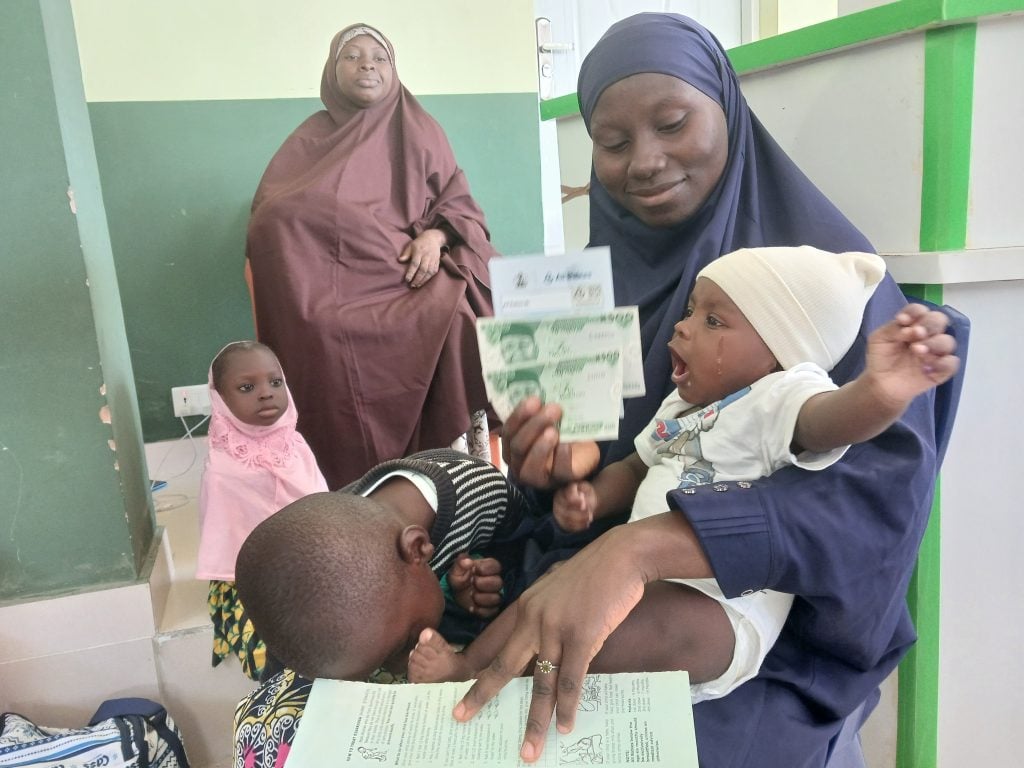Chima Azubuike
The Gombe State Primary Health Care Development Agency and the United Nations Children’s Fund have intensified joint supervision across the state to ensure the successful implementation of the ongoing Integrated Measles-Rubella (MR), Polio, Human Papillomavirus (HPV), and Routine Immunisation (RI) campaigns.
A high-level UNICEF delegation, led by Dr Rownak Khan, UNICEF Deputy Representative in Nigeria, and Mr Shaikh Kabir, Health Manager for Immunisation, was received by the Executive Secretary of the GSPHCDA, Dr. Abdulrahman Shu’aibu.
During the three-day mission, the team visited several sites, including the state’s Cold and Dry Stores, to assess vaccine storage facilities and campaign readiness. The delegation expressed satisfaction with the state’s level of preparedness and commended health officials for their commitment to ensuring smooth implementation.
UNICEF representatives also participated in the State Evening Review Meetings at the Agency’s Conference Hall, where partners reviewed progress, addressed challenges, and strengthened coordination to achieve better results.
Speaking on behalf of UNICEF’s Chief of Field Office, Dr Nuzhat Rafique, the team reaffirmed UNICEF’s continued support for Gombe State’s efforts to improve maternal, newborn, and child health outcomes.
Meanwhile, PUNCH Healthwise assessed the exercise at the Gidan Magani Town Maternity, Jekadafari Primary School, and Bolari Primary Health Centre.
The Gombe Local Government Immunisation Officer, Dahiru Abdullahi, commended the high level of acceptance among families and community members, describing the turnout as overwhelming.
“We have achieved a lot in Gombe LGA. There has been a remarkable turnout of clients, and compliance is high across our posts,” he said.
Abdullahi attributed the success to increased awareness and community engagement.
“This is an integrated campaign. We are vaccinating children aged nine to 14 years for Measles-Rubella (MR), administering Oral Polio Vaccine (OPV) to children aged zero to 59 months, and HPV vaccines to girls from nine years and above. We are also conducting Routine Immunisation for children aged zero to 23 months,” he explained.
Similarly, Rabiu Inuwa, Ward Focal Person for Jekadafari, praised community involvement for the success recorded in his ward.
“So far, so good. This success is due to mobilisation by community, religious, and traditional leaders. Awareness is high, and as you can see, even at the school venue, community members continue to bring their children for vaccination,” he said.
At the Gidan Magani Primary Health Centre, parents thronged the facility to access vaccines. Asma’u Mahdi, a civil servant, lauded the government and its partners for sustaining the immunisation efforts.
“This is my second child, and I’ve always known the importance of vaccination. When my first child had measles, it wasn’t severe because he had been vaccinated. It helped him recover quickly,” she shared.
An Environmental Health Officer at the Town Maternity, Safiya Mohammed, noted that acceptance of immunisation is growing among parents.
“Parents now understand the importance of immunisation and are bringing their children willingly,” she said.
Also, Vilret Dasam, an official of New Incentives, was seen by PUNCH Healthwise distributing cash incentives to mothers. He explained that the initiative aims to encourage acceptance and remove financial barriers.
“Our job is to give incentives. The organisation provides ₦1,000 to mothers after each successful immunisation visit as encouragement. Routine immunisation is done about six times, so they receive a total of ₦6,000, and in some cases up to ₦11,000, by the end of the cycle,” he explained.
Copyright PUNCH
All rights reserved. This material, and other digital content on this website, may not be reproduced, published, broadcast, rewritten, or redistributed in whole or in part without prior express written permission from PUNCH.
Contact: [email protected]

